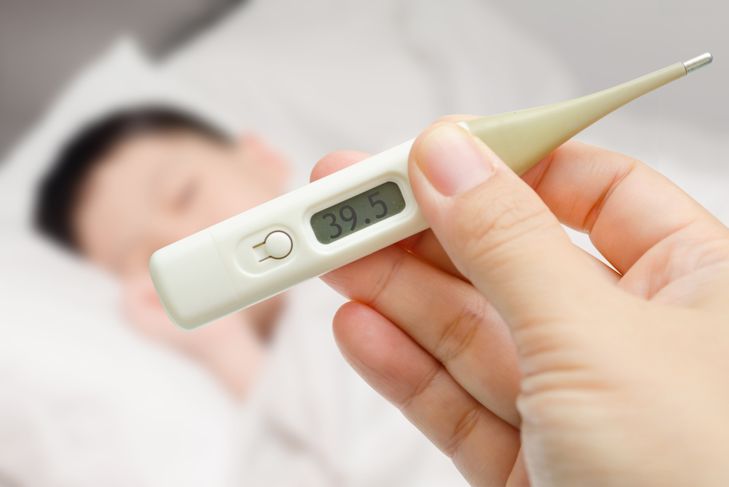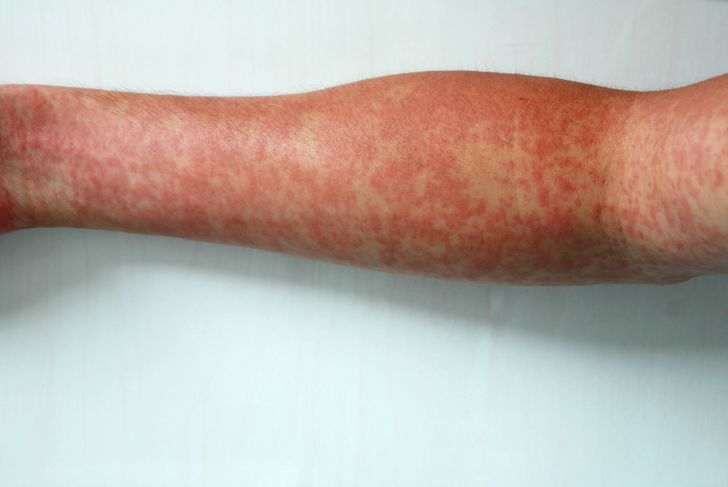A mosquito-borne disease common in the tropics, Dengue Fever, is a viral infection that can prove to be life-threatening in certain circumstances. The virus responsible for dengue has five types, and exposure to one type usually allows for lifelong immunity against it but only short-term immunity against the other types. There is no specific treatment for dengue, and oral or intravenous re-hydration is prescribed in mild to moderate cases; for more severe infections, intravenous fluids and blood transfusion may be required. The following symptoms usually signify the onset of dengue fever and call for immediate recuperative measures.
High Fever
In a way, high fever is the most distinctive symptom associated with dengue, even as it is a very non-specific ailment to have otherwise. Those who contract the virus typically develop a very high temperature ranging from anywhere between 101 – 104 degrees Fahrenheit; this usually occurs 3 – 15 days after exposure to the virus. Many patients complain of severe chills and shivering adding to the discomfort. Mostly, over-the-counter medication is prescribed to keep the fever in check. It is vitally important that one avoid self-medication when it comes to dengue since several over-the-counter drugs can cause bleeding complications. Thus, if one has a high fever and other dengue symptoms, they should refrain from taking any meds themselves and consult a physician immediately.
Aches and Pains Across the Body
Most people with dengue fever also tend to develop aches and pains across their bodies. These may occur in the muscles, the bones or even the joints. This happens because the viral presence causes a deficiency of vitamins and minerals in the body, thus causing the body to ache. In a large number of cases, the pain is quite severe, which makes the intake of nutrient-rich fluids extremely important. In fact, in people with compromised immunity and those who do not engage in healthy food consumption during or after recovery may experience body aches for many weeks even after the infection has been contained.
Nausea and Vomiting
In several dengue fever cases, patients suffer from nausea and vomiting as well. This is because if the virus is potent and the sufferer’s immunity is poor, the infection spreads more rapidly and affects the gastric tract. Nausea and vomiting shouldn’t last for more than a couple of days and should not occur too frequently. If it does, the suffering individual has severe dengue, which is a life-threatening condition. Even with non-severe dengue, low-intensity nausea or vomiting tends to affect the body adversely. Dehydration is also a serious concern when it comes to profuse vomiting.
Skin Rash
Another fairly common symptom of mild to moderate dengue fever is the appearance of a skin rash. In most instances, the rash occurs about 3 to 4 days after the fever. It initially tends to affect the facial area, giving the skin a spotty, flushed look with patches of redness. The second site for the rash is the trunk area where it may spread out in all directions – towards the chest, arms and even legs. Another type of dengue rash is characterized by clustered dots which may appear anywhere across the body once the fever begins to subside. For the most part, the dengue rash is not itchy. However, in some rare cases, individuals have been found to develop an itchy rash on their palms and soles of their feet. Dengue rashes also tend to appear and reappear. They may get better by themselves for a couple of days and then resurface unexpectedly.
Loss Of Appetite
People suffering from dengue fever often lose their appetites. This is understandable as they may be more dehydrated than normal. This loss of fluid needs to be addressed urgently to prevent exacerbation of other symptoms. If the infection is mild to moderate, relief from these symptoms should be achieved in about 3 to 4 days at the most.
A headache
The usage of painkillers to alleviate discomfort should be restricted to those prescribed by a medical practitioner. Some over-the-counter medications may aggravate the symptoms or increase the risk of complications. Headaches, lower-back pain, and pain behind the eyes are most widely observed in dengue patients. While it may be tempting to take an over-the-counter drug that’s known to alleviate these issues, it’s not advisable without a doctor’s consent.
Abdominal Pain
Severe abdominal pain is a common symptom of dengue fever. The feeling of pain in the stomach can range in intensity from moderate to intense. The pain usually develops in the right upper quadrant of the stomach. The pain can also be exacerbating by the vomiting, which takes a toll on the muscles involved in the straining that vomiting causes.
Bloody Gums And Nose
Some people may also suffer from nose bleeds and bloody gums after contracting dengue fever. This condition where one’s nose bleeds is rarely life-threatening and is called Epistaxis. Most times, nosebleeds are benign but can be recurrent. However, in rare cases, epistaxis can be severe enough that it requires a blood transfusion. Profuse bleeding that doesn’t stop is grounds for contacting a doctor.
Blood In Stools
After 3-5 days of fever, one experiences blood in stools. Black stools, like coal tar, may become noticeable for the patients suffering from dengue. The condition is called Melena. This occurs primarily due to bleeding in the alimentary tract. If you notice this symptom, you should see your physician. In fact, it’s important to keep your doctor abreast of all of your symptoms.
Symptoms of Complication
A small minority of dengue victims may develop severe dengue which is a potentially life-threatening condition. In such cases, blood vessels may get damaged and become leaky, and the platelet count of the bloodstream may drop severely. Organ dysfunction relating to the lungs, heart or liver may also occur. These developments then produce some symptoms alongside the typical dengue discomforts. Patients may vomit persistently, often with blood in it. Bruise-like formations may be visible on the skin, which actually signifies bleeding under the epidermis. The presence of any of these symptoms constitutes a medical emergency, and the suffering individual should receive professional medical attention as soon as possible.

 Home
Home Health
Health Diet & Nutrition
Diet & Nutrition Living Well
Living Well More
More




















